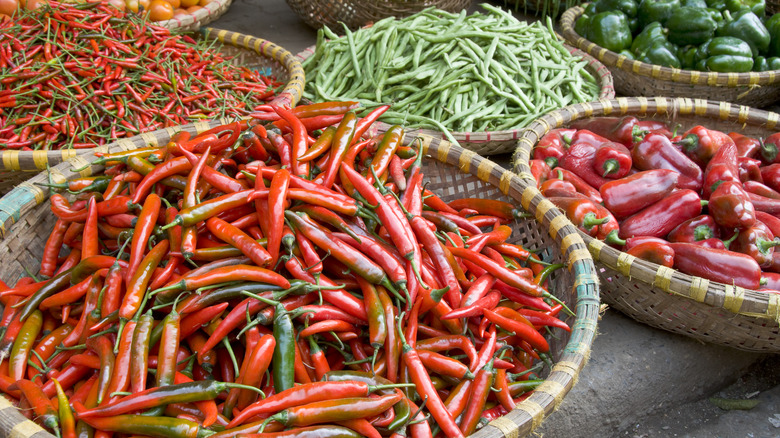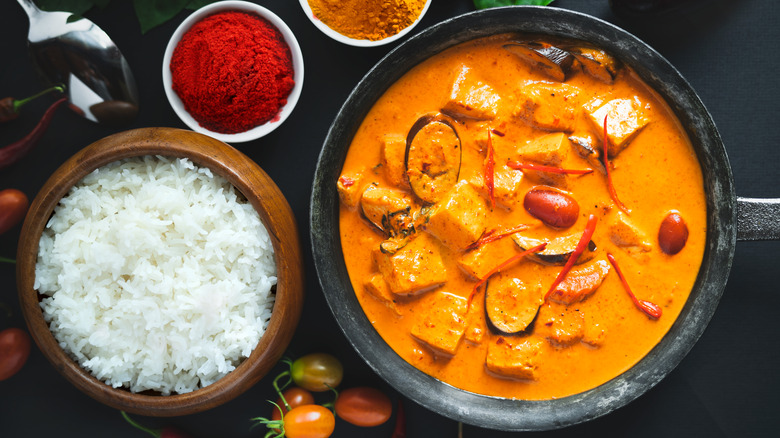How To Fix Overly Spicy Hot Sauce Without Changing Up The Recipe
Even the biggest fan of hot sauce and spicy food may eventually encounter a selection that is much too intense to enjoy reasonably. Fortunately, there is an easy and convenient hot sauce hack that decreases the heat level without altering the flavor of the sauce. First, pour the overly spicy hot sauce into a pan on your stovetop. Next, peel a potato, cut it into sizable chunks, then place them into the hot sauce. Cook the mixture on low heat for a few minutes — the starchy potato will absorb the oils and juices in the sauce. Now remove the potatoes and use the hot sauce as you normally would for a less fiery experience.
Starchy foods, including potatoes, help decrease the spiciness of a dish because they effectively absorb capsaicin, which is a chemical found in chili peppers. Starches also have an impact on your taste buds by distracting them from the intense heat and spice of the hot sauce you're eating. Additionally, there are plenty of other effective methods at your disposal that can temper the heat of hot sauce without having a major effect on the taste.
Other options for diluting hot sauce without affecting flavor
If you find that a recipe you're preparing is far too spicy for your liking, adding more mild ingredients might be the thing to save it. Certain types of veggies, such as squash and corn, contain lots of water while also having a rather mild flavor. That means they're an excellent addition to extremely spicy recipes as the water content will dilute the fiery sauce — while the vegetables' subtle flavor won't alter the dish too drastically. Protein, such as chicken or beef, can serve a similar purpose, provided that the protein you're using hasn't already been seasoned.
Acidic ingredients are equally beneficial for turning down the spiciness of a hot sauce or dish. Additions like vinegar and citrus juices minimize the impact of oils in peppers, hot sauces, and other preparations, as they help balance pH levels. And when these components are thoroughly mixed into a sauce or recipe, their flavor should be all but undetectable. If you're not too concerned about altering the taste of your dish, there's a whole host of ingredients you can use to create a new flavor profile.
How specific ingredients can impact the flavor of hot sauce
In some cases, it may be necessary to add an ingredient to your hot sauce that lowers the spiciness rating while also impacting the flavor. In this instance, adding certain ingredients can decrease the intensity of the condiment while simultaneously imbuing it with a more pleasing flavor for your taste buds. When it comes to Thai chili sauces or spicy curries, coconut milk is the perfect addition. Coconut milk will dial back the spice intensity quite a bit while also creating a smooth and creamy texture. Plain yogurt can work in a similar manner, albeit by imbuing a dish or sauce with tangier flavors.
When it comes to sauces with tomato bases — like Louisiana-style hot sauce — you can add more tomatoes in the form of sauce, paste, or even ketchup. Tomato-based hot sauces can also benefit from sweeteners — for example, a small amount of sugar — as well as honey. No matter what ingredient you incorporate, add it in small amounts and taste the mixture as you go to ensure it meets your flavor preferences.


